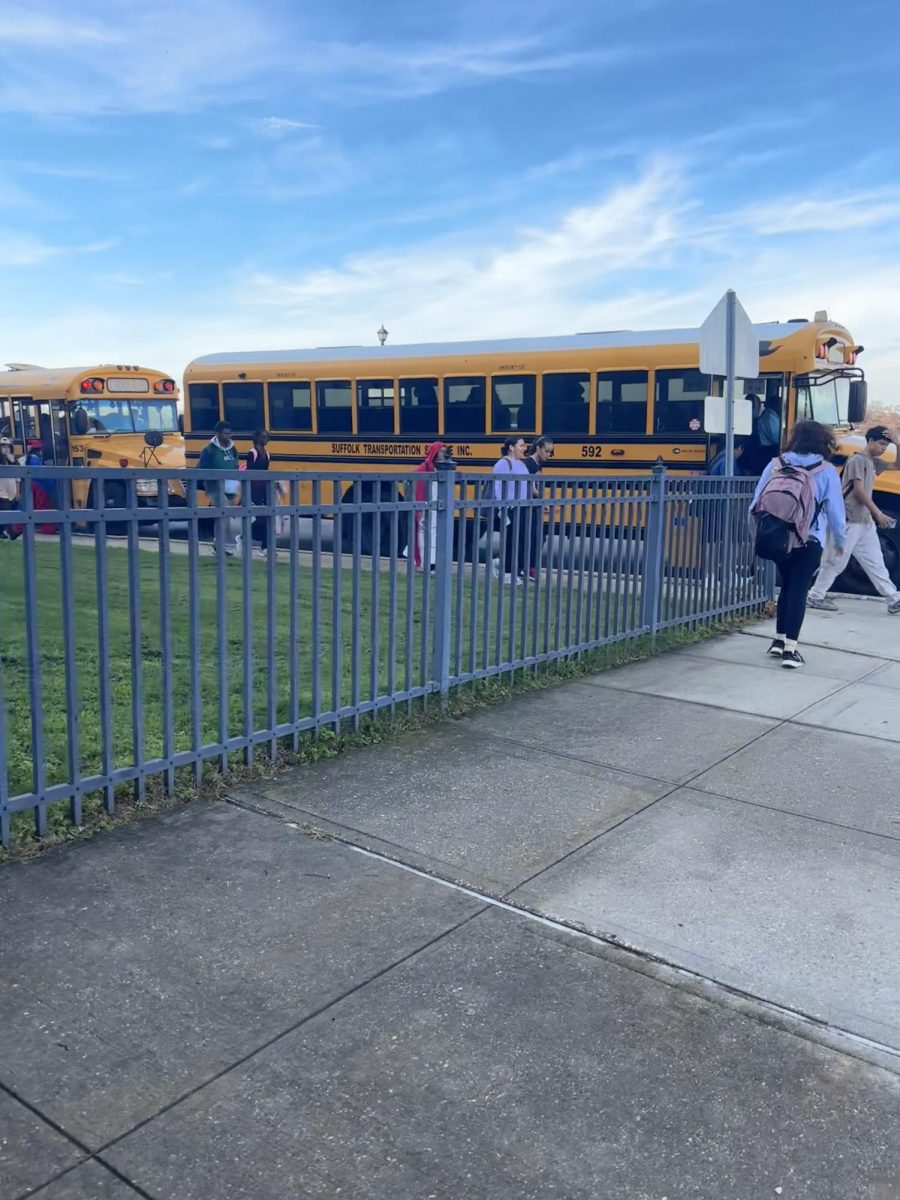As students in Bay Shore High School prepare for another day of learning, many students face a harsh reality long before their first class starts, the struggle to wake up early and make it to school on time. The early bus routes made to get students to school take a serious toll on their mental health and energy levels. According to Stanford Medicine, “Sleep deprivation increases the likelihood teens will suffer myriad negative consequences, including an inability to concentrate, poor grades, drowsy-driving incidents, anxiety, depression, thoughts of suicide and even suicide attempts.” Insights from bus drivers and students reveal a very big difference in the morning experiences of high school and elementary students.
I’ve spoken with two bus drivers who go through the roads of Bay Shore every morning, and notice the differences between the students they bring to school. Linda Thompson has been driving for six years and Tom Barlowe has been driving for over a decade.
“It’s like watching two different worlds. The high school students come on the bus looking exhausted, with many still half-asleep,” Thompson said. “They’re quiet and often just staring out the window, while the elementary students are buzzing with energy. They seem more well-rested, laughing and chatting about the day they’re going to have. It makes me think that maybe the little ones are getting the sleep they need, while the high schoolers are struggling.”
Early start times may contribute to the tiredness and stress that older students have. The comparison of the two age groups shows how the early mornings can cause significant mental strain.
“I definitely notice a shift in how the high schoolers feel on days when school starts later,” Barlowe says. “When we have those late start days, they come onto the bus much more energized, chatting and laughing. It’s a huge contrast to the typical early morning crowd. It’s like they actually have time to wake up and get ready for the day. They could also perform much better academically and socially if they didn’t have to wake up so early all the time.”
Tom supports the idea that even a small change in schedule could lead to a really big improvement in students’ mental health and overall well-being.
To see how these early start times impact student life, I spoke with a freshman, Charlotte Yuli and a junior, Alicia Anderson in the High School.
“I really think high school should start later,” Yuli says. “I always feel tired and have a really hard time focusing after lunch. I know I’d be more awake and not wanting to go home all day if school started later. With homework and sports, it’s so hard to get sleep too. When I get home from soccer, it’s so hard to do my homework.”
“I think starting later would definitely help,” Anderson says. “Right now, I usually get around six hours of sleep, which isn’t enough. On the days we start later, I feel like I can actually participate in class instead of just trying to stay awake. 7:20 is way too early, especially when we have so much to do out of school. I feel like most of us would feel better if we had more time to rest in the mornings.”
Early busing times significantly affect students’ mental health and grades. With bus drivers and students hoping for change, it’s clear that the early hours of the school day are taking a toll on everyone at our school. High schools need to start earlier in the morning so they have better results for their students academically and socially.





